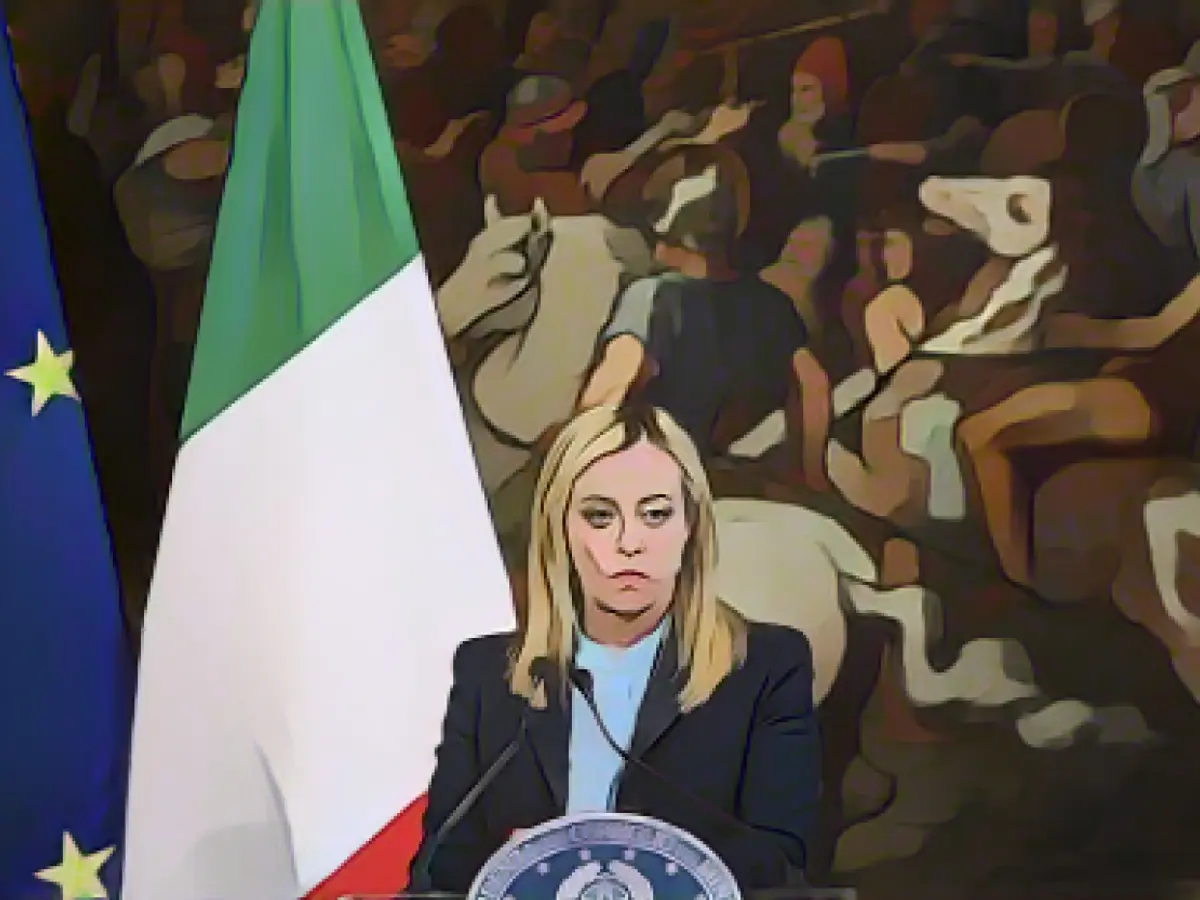Italy's Premiere, Giorgia Meloni, confirmed on Thursday the anticipated step to fulfill an election promise made last year, voicing concerns about the lack of benefits for Italy's economy from the 2019 deal between former leaders and China. Meloni noted, however, that Rome could maintain good relations with Beijing beyond the "One Belt, One Road" initiative, which has extended China's global influence but also raised concerns about placing economic burdens on some countries.
"I think we should...improve our cooperation with China in trade and economics," Meloni told reporters, adding that the tools of the "One Belt, One Road" initiative are not delivering the desired results (1). She also mentioned that the agreement expires in March 2024.
This move comes as the EU initiates a campaign to "risk mitigation" of Chinese supply chains and secure sensitive technologies, following its 2019 labeling of China as a "systemic competitor."
Tensions were evident during Thursday's EU-China leaders' meeting in Beijing, where contested topics ranging from trade to the Ukraine conflict were discussed without making substantial progress.
China, having cooperation agreements with reportedly over 140 countries under the program, invested heavily in infrastructure projects (roads, ports, airports, and bridges) over the past decade, primarily in southern Hemisphere countries.
Italy joined the program in 2019, a decision generally viewed as a diplomatic win for Beijing, following criticisms from Washington and Brussels. In a recent interview, Italian Defense Minister Guido Crosetto called the 2019 decision "bad" and mentioned growing trade imbalances between the two countries.
Chinese imports from Italy totaled $26.9 billion last year compared to $21.4 billion in 2019, while Chinese exports to Italy saw a significant increase from $33.5 billion to $50.5 billion over the same period. Italy joined the initiative under former pro-Chinese Prime Minister Giuseppe Conte, who criticized the withdrawal in a Facebook post claiming "ideological reasons."
Italian officials seem cautious in addressing the matter, with Meloni insisting on the possibility of maintaining good relations with China outside the "One Belt, One Road" initiative. She has also dismissed speculations of external pressures forcing Italy to withdraw from the program.
This announcement was made as a high-ranking EU delegation visited Beijing for the first personal EU-China summit in four years to improve strained relations between China and Europe, which sees China as a significant potential counterweight in its competition with the United States.
- Insight: The benefits of China's Belt and Road Initiative have been debated, with some countries questioning its economic and geopolitical implications. Even though Italy's decision to reassess its participation in the program may not be a significant shift in China's global influence, it underscores the need for balanced economic relations between countries participating in the initiative and China.








